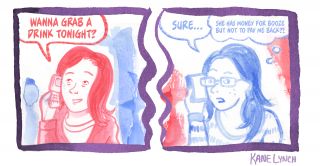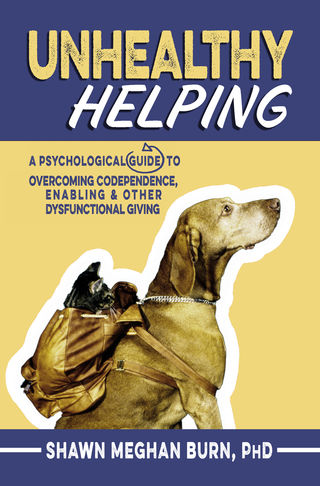Relationships
How Helping a Friend Can Go Horribly Wrong
The hazards of entering into 'dual relationships' with friends or relatives.
Posted March 18, 2015

Are you in a dual helping relationship with someone close to you? Such relationships can arise when we try to help a struggling friend or relative by lending them money, renting them a place to live, or hiring them to work for us. These helping actions create a situation where we have two potentially contradictory relationships with the same person—a business relationship and a personal relationship.
If the friend or relative pays back the money as agreed, sticks to the housing agreement, capably and reliably performs the job you hired them for, and uses your help to move forward in their life, a dual relationship can work. But if they don’t, the dual relationship becomes a dueling relationship as the demands of your “business” and “personal” roles clash.
This makes dual helping relationships potentially risky and stressful.
For example, as a lender, you typically have a formal contract and expect prompt payment. We feel it’s appropriate to take action against borrowers who don’t comply with such an agreement—it’s nothing personal. However, if you’re also the borrower’s loved one or friend, and they fail to honor the lending agreement, you may struggle with asking for repayment, resent having to repeatedly beg for it, and seethe over their spending when they should be paying you back.
The same goes for helping a friend or relative by becoming their landlord. If a tenant failed to pay rent or perform agreed-upon duties, then as a landlord you probably wouldn’t hesitate to speak up, or even evict them. But boundary setting is complicated when you’re also the tenant’s relative or friend. It can feel petty, selfish, mean, and generally dissonant with our role as supportive family member or friend.
Trying to help a friend or relative by hiring them to work for you is also risky. If an employee takes long lunches, leaves early, or performs poorly in some way, then, as an employer, you’d call them out, give them a warning, or fire them. But if the employee and you have a dual relationship, you’ll likely experience conflict about saying or doing anything about it.

Feelings of hurt, anger, resentment, and betrayal are common in these scenarios. When people close to you break agreements or take advantage of your generosity, it’s hurtful and disappointing. Who is this selfish person who’s suddenly willing to take advantage of you and jeopardize your relationship? This isn’t the person you respect and agreed to help! When you go out on a limb to help, you don’t expect the other person to cut off the branch and leave you hanging. If only they lived up to the agreement there’d be no problem. But now instead of your help making you the “good guy,” as you intended, you feel forced to become the “bad guy” by trying to enforce the agreement. Conflicts over the “business” relationship erode trust and damage the personal relationship, sometimes temporarily, sometimes permanently.
Does this mean you shouldn’t help friends or relatives by lending them money, renting them a place to live, or giving them a job? Not necessarily. As the Beatles once said, “I get by with a little help from my friends.” Helping others is a good thing. But you should avoid dual helping relationships with:
- People who have failed to honor past agreements.
- People who have demonstrated a tendency to take advantage of your or other people’s help.
- People who have trouble using alcohol or drugs responsibly.
- People who have a track record of resisting or rebelling against authority.
- People who have exhibited signs of narcissism (e.g., feels entitled, has little empathy, blames others for their problems, is arrogant)
Dual relationships with such people are high-risk and unlikely to work out—though some people with such histories can change and may need a helping hand and second chance to get there, so sometimes it’s worth the risk. And, while people with codependent tendencies often ignore these red flags and repeatedly enter into risky dual helping relationships, codependence isn’t necessary for an unexpectedly stressful dual helping relationship to develop.
If you choose to enter into a dual helping relationship, go in with your eyes open, knowing it’s a risk. Set clear ground rules, including expectations regarding repayment, work performance, or rent, how long you’re willing to help, etc. (and ideally in writing). Finally, be prepared to call the deal off if:
- They choose not to honor your agreement.
- They use your assistance to avoid the hard work of being a mature adult instead of using it as a springboard to self-reliance.
- You’re becoming resentful, or feeling disrespected and taken advantage of.
- It’s hurting your relationship.
- You can no longer afford it.

Based on ideas from the book Unhealthy Helping: A Psychological Guide to Overcoming Codependence, Enabling, and Other Dysfunctional Giving now available in paperback and for Kindle, iBooks, Nook, and Kobo readers.




